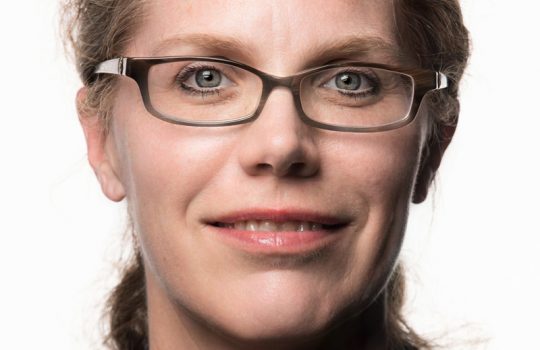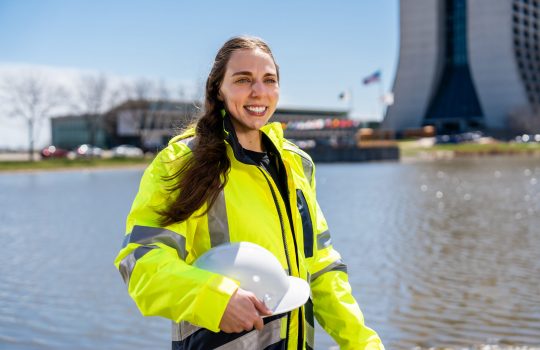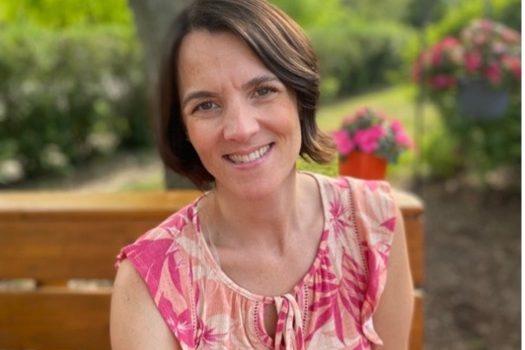BATAVIA, Ill.-Helen Edwards, whose work in the early days of the Department of Energy’s Fermi National Accelerator Laboratory is a foundation of past, present and future scientific achievements, and whose current work is helping shape the next generation of particle accelerators, has been awarded the 2003 Robert R. Wilson Prize by the American Physical Society.
The award is named for Fermilab’s founding director, Robert Rathbun Wilson (1914-2000), and was established in 1986 by friends of Wilson, and by the Division of Particles and Fields and the Division of Physics of Beams of the American Physical Society. Previous winners include Cornell University’s Maury Tigner (2000) and Fermilab’s Alvin Tollestrup (1989).
“It is a great honor to receive the Wilson Prize,” said Edwards, who with her husband, Don, worked with Wilson first at Cornell University and then at the National Accelerator Laboratory, later renamed Fermilab.
The 2003 award cites Edwards “for her pivotal achievement and critical contribution as the leader in the design, construction, commissioning and operation of the Tevatron, and for her continued contributions to the development of high gradient superconducting linear accelerators as well as bright and intense electron sources.”
“I was delighted to learn that Helen Edwards had been awarded the Wilson Prize,” said Fermilab Director Michael Witherell. “Bob Wilson brought Helen to work at Fermilab, and both of them made essential contributions to the remarkable success of Fermilab and its accelerators. I’m very pleased that Helen’s work has been recognized in this way.”
In a distinguished and much-heralded career, Edwards has been the recipient of a MacArthur Fellowship, the National Medal of Technology, and the Department of Energy’s E. O. Lawrence Award. She is a member of the American Academy of Arts and Sciences and of the National Academy of Engineering, and is a Fellow of the American Physical Society.
“My husband and I worked under Bob Wilson’s direction for over 20 years and we benefited greatly from his example,” Edwards said. “I believe this award is for my husband as much as for myself, as we have worked effectively as a team over the years. I have grown to appreciate Wilson’s leadership and convictions more and more over the years. Not only was he a great technical leader but he communicated his beliefs with great clarity. He lauded international collaboration and decried ‘creeping bureaucracy.’ I can do no better than to excerpt some of his thoughts from his 1969 testimony before Congress, on building the Fermilab accelerator: ‘…(T)his new knowledge has all to do with honor and country but it has nothing to do directly with defending our country except to make it worth defending.'”
The Tevatron, cited in the Wilson Award, accelerated its first beam in 1983 and recorded its first proton-antiproton collisions in 1985. With the Tevatron collider, scientists discovered the top quark in 1995. Still the world’s highest-energy particle accelerator, the Tevatron is poised for major breakthroughs in the understanding of elementary particles and forces during the current Collider Run II, at even higher energy and at a new record rate of proton-antiproton collisions.
Currently, Edwards is engaged in research in superconducting technology for one of the possible designs of an electron-positron linear collider, which has been proposed as the next machine for the field of high-energy physics, to be built as an international laboratory. She has been the leader of the Photoinjector Project, which used a superconducting radiofrequency cavity for the first time at Fermilab to accelerate an electron beam. She spends time at Deutsches Elektronen Synchrotron (DESY) in Hamburg, Germany on research and development for the TESLA superconducting linear collider.
For more information on the Robert R. Wilson Prize, and a list of previous winners since 1987, go to the American Physical Society Web page for prizes and awards at http://www.aps.org/praw/03winners.html.
Fermilab is a U.S. Department of Energy national laboratory, operated under contract by Universities Research Association, Inc.



